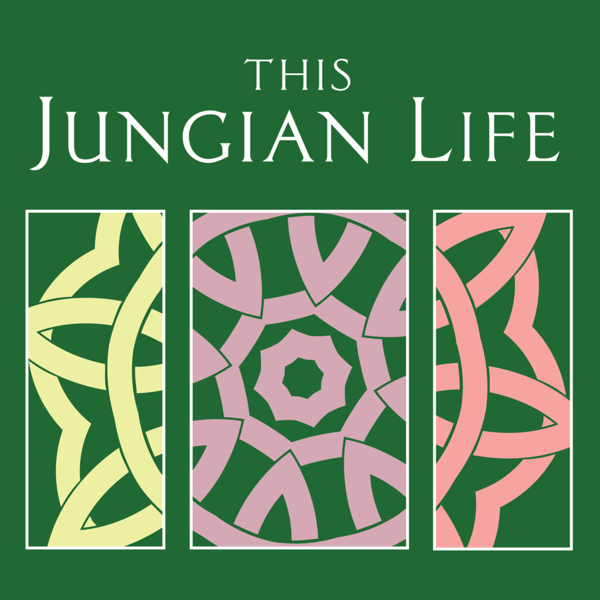OUR MORAL COMPASS: Understanding Guilt, Remorse, & Atonement
This Jungian Life Podcast
Joseph Lee, Deborah Stewart, Lisa Marchiano
4.8 • 1.7K Ratings
🗓️ 22 June 2023
⏱️ 86 minutes
🧾️ Download transcript
Summary
A sudden pang in the chest, a quiet voice persistently whispering at the back of our mind, we experience guilt when our actions, or deliberate lack thereof, infringe upon our personal ethical code or societal norms. Our shared experience of guilt, intertwined with personal and societal expectations, stands out among the wide spectrum of human emotions. As we cross the lines of standards crafted by inherited beliefs, imparted values, and personal experiences, guilt sounds a vigorous warning. Within our interactions, it has a dual role; it can serve as a bond to strengthen societal norms, or act as a barrier, fostering alienation and resentment. As it evolved with culture, guilt regulated behavior and maintained societal order. It serves as a societal adhesive, fostering group cohesion by promoting altruistic behavior, thereby ensuring community survival. Guilt is bivalent, misdirected, or disproportionate; it can be destructive, leading to anxiety, depression, and impaired decision-making. Alternatively, it can stimulate self-improvement, reminding us of the social contracts we participate in and guiding us toward moral maturation. From a psychological perspective, guilt's origins vary widely. Some theories suggest it arises from self-judgment, others propose it originates from problematic early childhood experiences, or it may stem from distorted or absolutist thinking. Recognizing and acknowledging guilt requires considerable strength, or it will discharge through projection and scapegoating. Guilt's interpretation can vary widely; Christianity views it as a consequence of sin necessitating redemption, Buddhism sees it as an opportunity for compassionate wisdom to correct unskilled behavior, and indigenous cultures regard it as a communal responsibility. Ancient philosophers maintained guilt arises from actions contrary to rational nature, causing internal disharmony. Distinguishing between guilt, shame, and remorse provides a clearer understanding. Guilt targets specific behaviors, shame attacks the self, and remorse evokes empathy towards those affected by our behavior. This distinction highlights guilt's potential to motivate reparative actions, whereas shame leads to paralyzing self-loathing. Remorse initiates transformational suffering. Guilt, remorse, and atonement are a recognition, regret, and repair cycle. This arc, although uncomfortable, is vital for understanding ourselves and others. Restoring the balance between ego and Self, individual and society, requires atonement. Thoughtful reparations can empower us to transform guilt into constructive action and bring peace to our souls.
BECOME A DREAM INTERPRETER: We’ve created DREAM SCHOOL to teach others how to work with their dreams. A vibrant community has constellated around this mission, and we think you’ll love it. Check it out.
PLEASE GIVE US A HAND: Hey folks -- We need your help. So please BECOME OUR PATRON and keep This Jungian Life podcast up and running.
SHARE YOUR DREAM WITH US: SUBMIT YOUR DREAM HERE FOR A POSSIBLE PODCAST INTERPRETATION.
FOLLOW US ON SOCIAL MEDIA: FACEBOOK, INSTAGRAM, LINKEDIN, TWITTER, YOUTUBE
INTERESTED IN BECOMING A JUNGIAN ANALYST? Enroll in the PHILADELPHIA JUNGIAN SEMINAR and start your journey to become an analyst.
LET’S STAY in TOUCH: SUBSCRIBE to our free newsletter.
Transcript
Click on a timestamp to play from that location
| 0:00.0 | Welcome to this Jungian life. |
| 0:03.0 | Three good friends and Jungian analysts, Lisa Martiano, |
| 0:07.0 | Debra Stewart and Joseph Lee invite you to join them for an intimate and honest conversation |
| 0:12.0 | that brings a psychological perspective to important issues of the day. |
| 0:17.0 | I'm Lisa Martiano and I'm a Jungian analyst in Philadelphia. |
| 0:22.0 | I'm Joseph Lee and I'm a Jungian analyst in Virginia Beach, Virginia. |
| 0:27.0 | I'm Debra Stewart, a Jungian analyst and Cape Cod. |
| 0:37.0 | Hello, we have an exciting announcement this week. |
| 0:41.0 | This Jungian life is going to try going forward to share video as well as audio. |
| 0:49.0 | So for those of you who have been listening to us but maybe have wondered what the heck we look like, |
| 0:56.0 | you can head on over to YouTube and have that curiosity satisfied for better or worse. |
| 1:03.0 | So yeah, we're going to see how that goes. |
| 1:05.0 | This week on the podcast, we're going to be talking about guilt. |
| 1:09.0 | I think it's such an interesting topic. |
| 1:11.0 | It is a common emotion that has many different aspects to it. |
| 1:17.0 | And it's a very important psychologically. |
| 1:20.0 | I would say that guilt is important to our psychological growth. |
| 1:24.0 | And it plays a big role in the history even of psychoanalysis. |
| 1:29.0 | So we have lots of ground to cover today and let's go ahead and jump in and get started. |
| 1:36.0 | Well, I think we could say that guilt is part of the archetypal matrix of human beings |
| 1:44.0 | because it shows up in so much myth. |
| 1:47.0 | So when we look at the primary myth of the Western world, which right now is the Judeo-Christian myth, |
... |
Please login to see the full transcript.
Disclaimer: The podcast and artwork embedded on this page are from Joseph Lee, Deborah Stewart, Lisa Marchiano, and are the property of its owner and not affiliated with or endorsed by Tapesearch.
Generated transcripts are the property of Joseph Lee, Deborah Stewart, Lisa Marchiano and are distributed freely under the Fair Use doctrine. Transcripts generated by Tapesearch are not guaranteed to be accurate.
Copyright © Tapesearch 2025.

